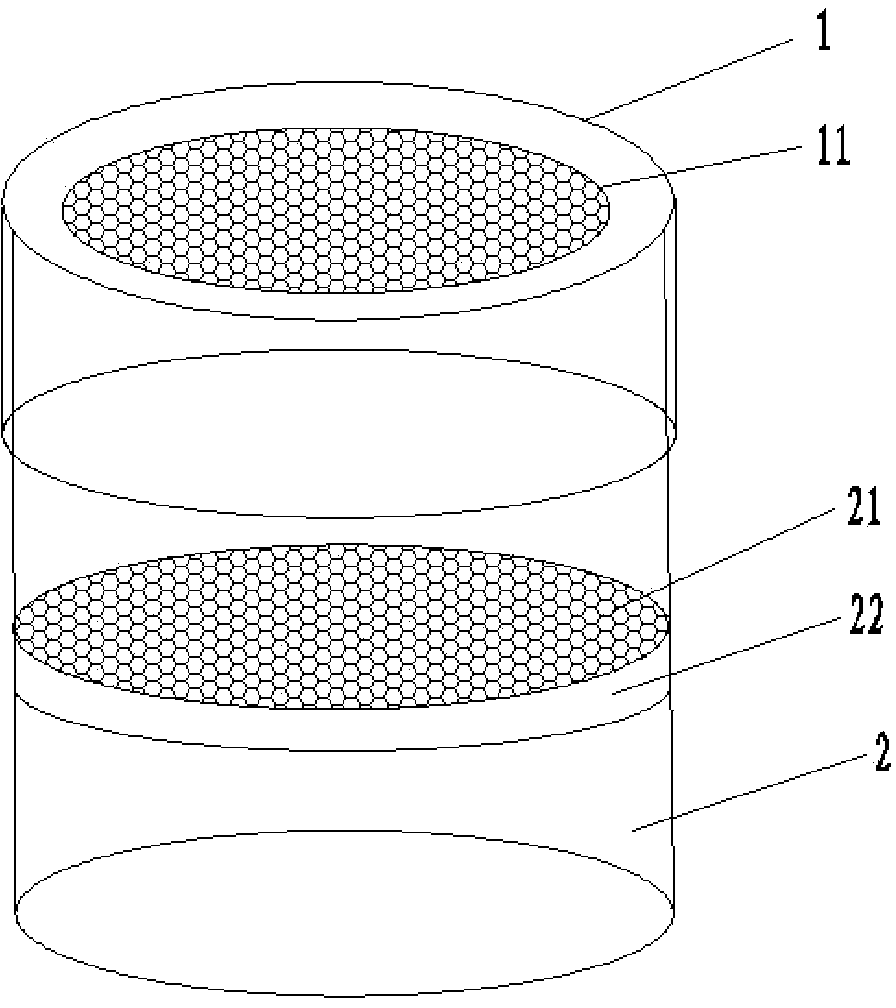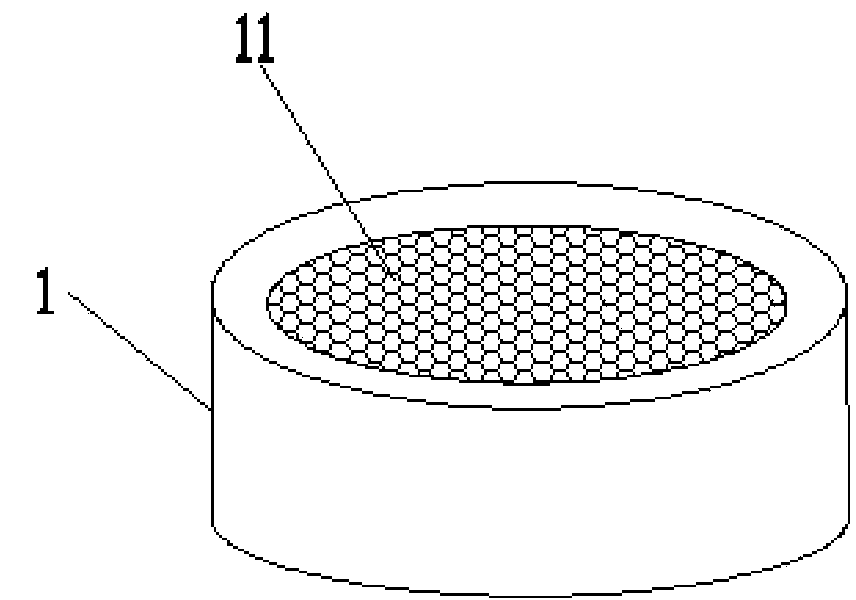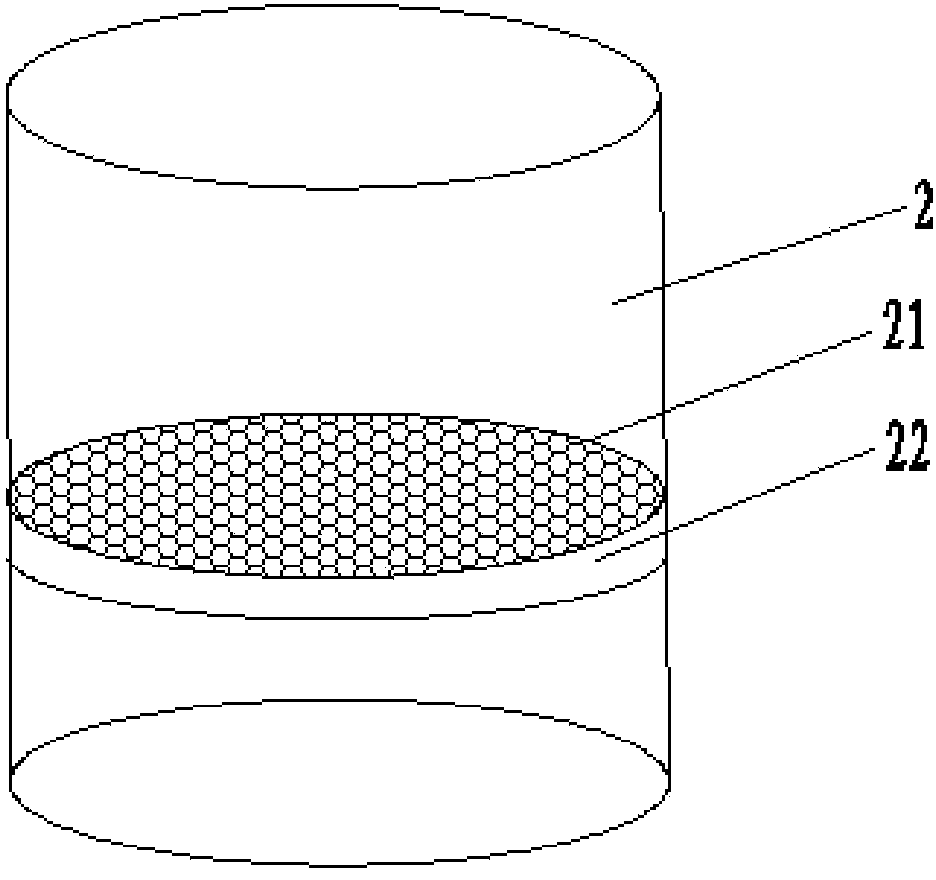Predatory mite toxicity testing method
A measurement method and technology of predatory mite, which is applied in the direction of measuring devices, instruments, scientific instruments, etc., can solve the problems of high escape rate of predatory mite, difficult to guarantee the accuracy of the results, and strong self-activity, so as to avoid suffocation and death, and the results are accurate Reliable, easy-to-produce results
- Summary
- Abstract
- Description
- Claims
- Application Information
AI Technical Summary
Problems solved by technology
Method used
Image
Examples
Embodiment 1
[0025] Example 1 Toxicity Determination of Chlorpyrifos and Lambda-Cyhalothrin to Neoseiusius pastereni
[0026] 1. Materials
[0027] 1.1 Source of tested mite
[0028] The object of the experiment was Neoseius mite, which was collected from the lemon leaves around the orchard of the Citrus Research Institute of the Chinese Academy of Agricultural Sciences.
[0029] 1.2 Chemical reagents: see Table 1
[0030] Table 1 Chemical reagents to be tested
[0031]
[0032] 2 methods
[0033] 2.1 Preparation of reagents with different concentration gradients
[0034] According to the instructions of the chemical reagents, the field concentration of predatory mites was diluted to prepare different concentration gradients. The different concentration gradients of chlorpyrifos and lambda-cyhalothrin set in this experiment are shown in Table 2. Each reagent set 8 different concentration gradients. concentration gradient.
[0035] 2.2 Toxicity assay operation method
[0036] For ...
Embodiment 2
[0054] Example 2 Comparison of the escape rate of Leaf Residue Method and the method of the present invention for Neoseiius pasteurii
[0055] The escape rate of N. pasteurii was compared between the traditional leaf residue method and the method of the present invention. Each method was used to detect 40 Neoseiusius mite, and each method was replicated three times. After 24 hours, the mites on the leaves and in the device of the present invention were counted to calculate the escape rate.
[0056] As shown in Table 3, it can be seen from the significance analysis results that the escape rate of Neoseiius pasteurii using the method of the present invention is significantly lower than the escape rate of the leaf residue method, indicating that the method of the present invention is used to detect the drug resistance of predatory mite. More accurate and reliable.
[0057] Table 3 Leaf residue method compares with the escape rate of the predatory mite virulence assay device of ...
PUM
| Property | Measurement | Unit |
|---|---|---|
| Mesh | aaaaa | aaaaa |
Abstract
Description
Claims
Application Information
 Login to View More
Login to View More - R&D
- Intellectual Property
- Life Sciences
- Materials
- Tech Scout
- Unparalleled Data Quality
- Higher Quality Content
- 60% Fewer Hallucinations
Browse by: Latest US Patents, China's latest patents, Technical Efficacy Thesaurus, Application Domain, Technology Topic, Popular Technical Reports.
© 2025 PatSnap. All rights reserved.Legal|Privacy policy|Modern Slavery Act Transparency Statement|Sitemap|About US| Contact US: help@patsnap.com



